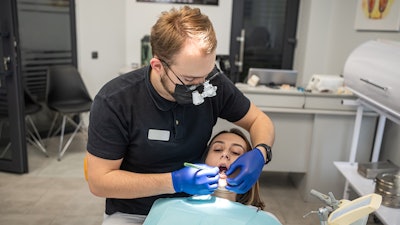
About 60% of North Carolina residents have not been screened for oral cancer by their dentist, according to a High Point University (HPU) poll that was carried out with the Workman School of Dental Medicine.
Additionally, nearly 1 in 7 (68%) respondents were unaware that HPV infection is the main risk factor for developing oropharyngeal cancer, and only 26% knew of this risk, according the poll conducted during Oral Cancer Awareness Month.
"This survey highlights the need for the entire health care community to remove silos and be at the forefront of educating patients on the risk factors associated with oral cancer,” Dr. Ali Shazib, dean of HPU’s Workman School of Dental Medicine, said in an HPU news article. The poll sought to determine people's awareness of oral cancer and the risk factors for developing the condition.
Of those polled, 81% said they knew smoking and smokeless tobacco was a risk factor for oral cancer as was inflammation (57%), alcohol consumption (55%), precancerous lesions (54%), and having a genetic predisposition to oral cancer (50%). But less than half of residents knew that HPV infection (48%), the oral microbiome (40%), and field cancerization (29%) were risk factors also.
Unfortunately, approximately 70% reported not having spoken to a dental professional in the past year about checking their blood sugar levels and how diseases like diabetes, heart disease, and Alzheimer's disease are related to oral health.
Furthermore, 64% of respondents had not communicated with their dental teams about the benefits of smoking cessation to improve oral health, that certain conditions affecting the mouth are related to nutritional deficiencies and food intolerances (64%), or the importance of examining one's mouth for signs of oral cancer (59%).
Finally, the HPU poll results revealed that a significant portion of the population had not seen a dentist in some time. Nearly half reported visiting a dentist or dental clinic in the past one to 12 months, whereas 16% responded it had been one to two years and 14% said it had been five or more years since they had visited a dentist or clinic.
"A systematic oral cavity examination with proper patient education performed annually would bring us one step closer to early detection and better outcomes,” Shazib said. "The time is now for us to unite to have those important conversations."



















